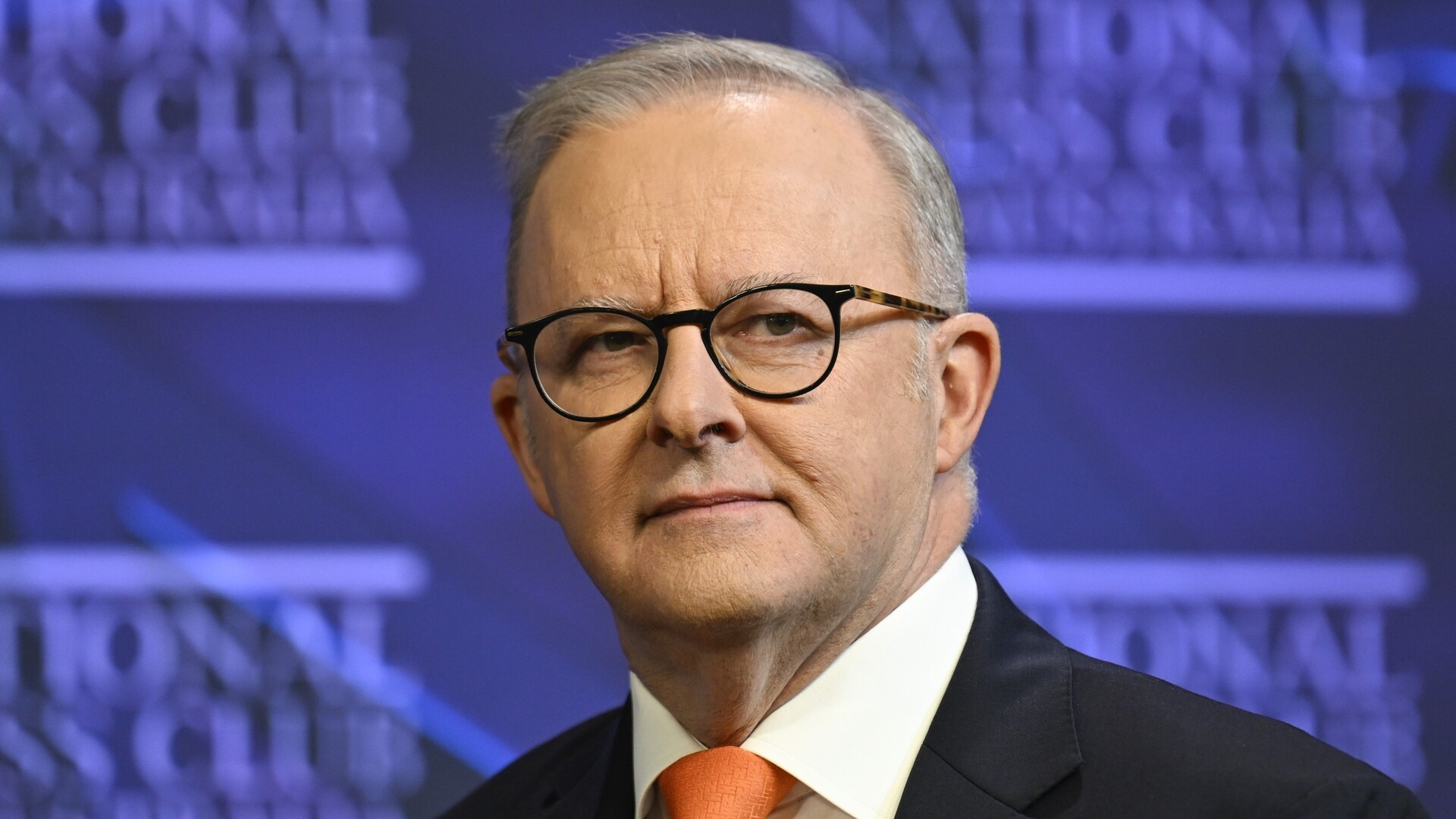Anthony Albanese ‘open’ to defence funding boost
Anthony Albanese is opening the door to lifting defence spending ahead of his potential meeting with US President Donald Trump on the sidelines of the G7 next week.

Anthony Albanese is opening the door to lifting defence spending ahead of his potential meeting with US President Donald Trump on the sidelines of the G7 next week, while declining to confirm publicly whether he considers China a national security threat to Australia.
The Prime Minister has for weeks stood firm on his position that he would not blindly tick off on the call from US Secretary of Defence Pete Hegseth for Australia to lift defence spending to 3.5 per cent, but on Tuesday left the door open to increasing funding for defence more broadly.
“Arbitrary figures lead to a cul-de-sac and we want to make sure as well that every single dollar that defence spends results in actual assets,” he told the National Press Club ahead of travelling to the G7 this week.
When asked if defence spending as a portion of GDP could feasibly increase as investment in such assets and capabilities went up, Mr Albanese said: “Of course, we’ll always provide for capability that’s needed. I’ve made it very clear – we will support the capability that Australia needs.

“I think that Australia should decide what we spend on Australia’s defence. Simple as that.”
It follows senior ministers such as Richard Marles and Pat Conroy indicating a similar willingness to boost spending on defence, with Mr Conroy confirming last week the government was “open to having a conversation about increasing defence funding”.
Former Defence Department deputy secretary Peter Jennings said the critical question for Mr Albanese was whether the current defence spend was adequate to the strategic challenge, arguing that the answer was a resounding “no”.
“He’s got a little bit of wriggle room now, if he finds that he’s under pressure from Trump or other allies or the calls for increasing spending just get too great, too loud domestically, well, then he does have a way out of it,” Mr Jennings said.
“What he’s doing is just describing a process; when he’s pressed on this issue, all he says is, ‘well, what we do is that we consider our needs based on proposals that are put in cabinet’.
“He’s not locking himself out of doing more, but clearly, I think he’s reluctant to, because they haven’t so far.”
Strategic Analysis Australia head of research Marcus Hellyer said he was sceptical over Mr Albanese’s language, arguing that for more investment to be made in specific capabilities, the government had to tick off on an increase in defence spending, rather than the process occurring the other way around.
“We have had review after review … and assessment after assessment, which have determined the capabilities we need, yet the current investment program doesn’t include them, why?” he said. “Because the current investment program was designed around a certain funding envelope.

“That’s why it’s ludicrous when people pompously say ‘we will acquire the capabilities we need’ when governments are the ones setting a funding envelope.”
While giving himself room to move on the issue of defence spending, Mr Albanese also sought to dodge direct questions over whether China posed a national security threat to Australia and argued that simplifying what was a “complex set of relationships” was neither “diplomatic” nor “mature”.
“We engage constructively in the region, including with China, and including with ASEAN nations and what we say is that it is in Australia’s interests and indeed, the world’s interest for there to be peace and security in our region,” he said.
“That’s our position. That’s the mature way in which we are able as a middle power to exercise influence in the region.”
It follows a Chinese flotilla circumnavigating Australia ahead of the election, with Mr Marles confirming Australia engaged in an “unprecedented level of surveillance” of the ships that he said were conducting exercises and “seeking to … demonstrate” capabilities.
“We are very aware of what that task group was doing, the exercises that it was engaging in, what it was seeking to be able to demonstrate,” he told Sky.

Despite the expected meeting with Mr Trump being just days away, Mr Albanese once more made veiled inferences over the danger of “copying” policies from overseas – or more specifically the US – that would leave Australia “narrower, less generous and more divided”.
It followed Labor accusing the Coalition of importing policies from overseas numerous times during the election, arguing the opposition would “Americanise Medicare” if it won office.
Mr Albanese also confirmed that other policies on top of the question of defence spending, such as the news media bargaining code and the under-16s social media ban, were also not “on the table” when it came to speaking to Mr Trump about lifting the tariffs imposed on Australian products by the US.





To join the conversation, please log in. Don't have an account? Register
Join the conversation, you are commenting as Logout